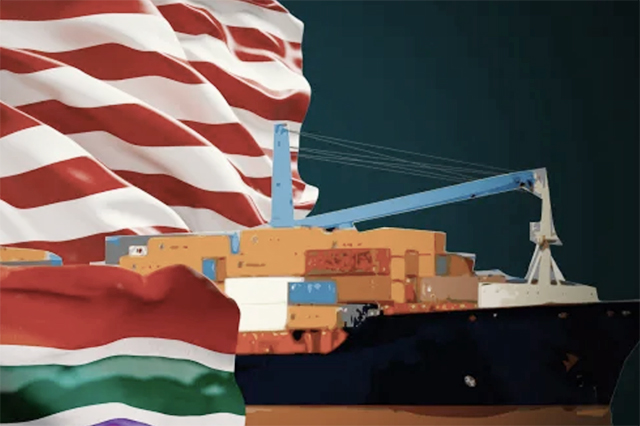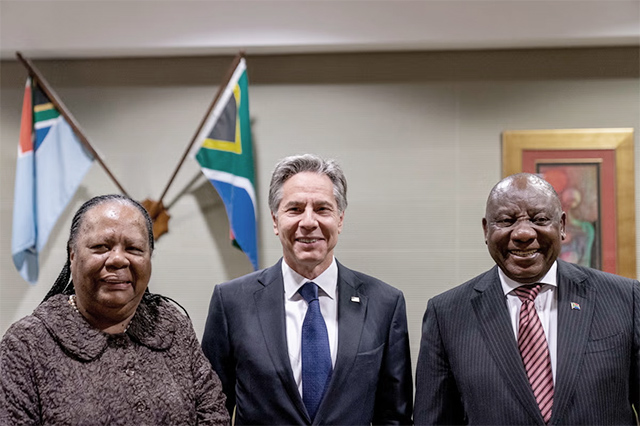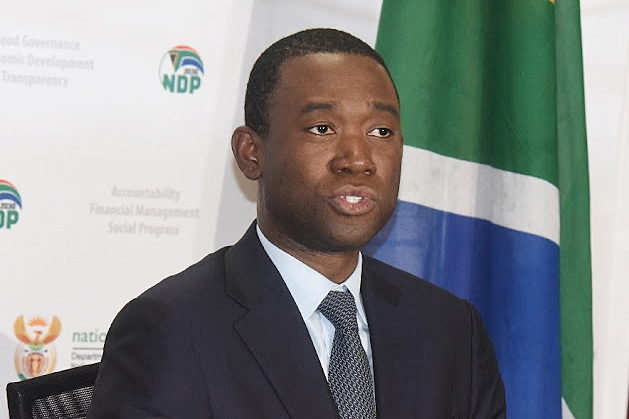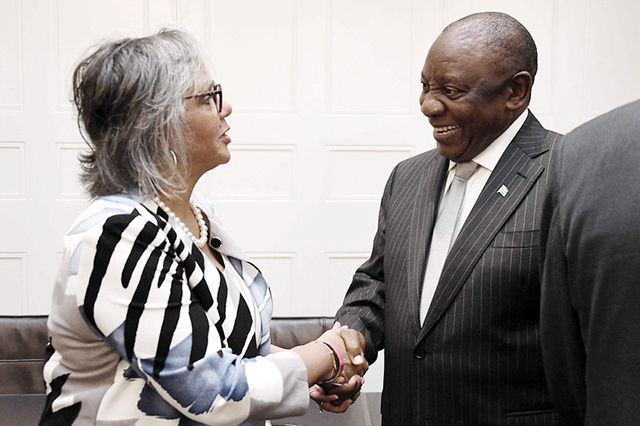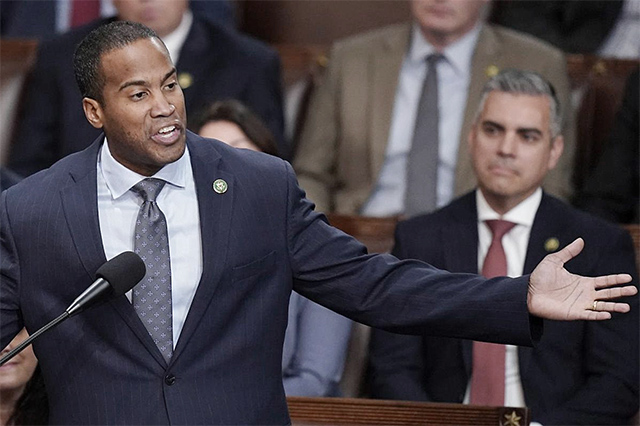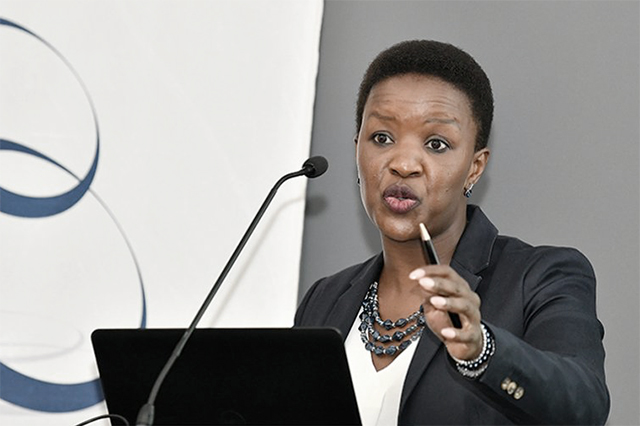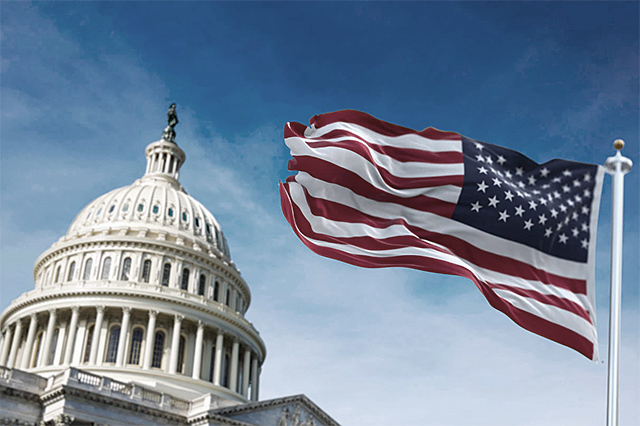Has AGOA worked too well for South Africa?
Trade and Industry Minister Rob Davies must find himself in an ideological quandary over South Africa's economic relationship with the United States (US), which he will be visiting next week, along with President Jacob Zuma, for President Barack Obama's first US-Africa summit.
As a dedicated communist, he probably regards North America as the arch-enemy, ideologically speaking.
Yet in many ways trade with the US is achieving far more of his government's development goals than trade with any other country - including, for example, its developmental bedfellow China.
US-South Africa trade is providing a significant stimulus for manufacturing, industrialisation and job creation. That's largely because of the African Growth and Opportunity Act (AGOA), which allows qualified African states to export goods into the US duty free, and without having to reciprocate that access into their own markets. It has been especially beneficial to South Africa, the most sophisticated economy on the continent.
Through the AGOA, South Africa has exported significant quantities of manufactured goods - most notably about 60 000 automobiles a year. Since the AGOA was established in 2000, it has greatly helped to turn a trade deficit with the US into a trade surplus - of about R12 billion last year, for instance. About 75% of US imports from Africa under AGOA are crude oil. Of the non-oil imports, 75% come from South Africa.
But now the AGOA itself - and particularly South Africa's continued participation in it - are in jeopardy, with calls by some US business interests and legislators to ‘graduate' South Africa from the programme when it comes up for renewal next year. In a sense, the AGOA has been too successful for South Africa. These US interests complain that the measure was designed to uplift developing countries, not boost middle-income countries like South Africa.
What's worse, they say, or at least imply, is that South Africa is being ungrateful for AGOA because it is increasing restrictions on US imports and is discouraging investment. As Patrick Gaspard, the US Ambassador to South Africa, complained recently, the reasons the South African authorities gave for blocking imports of pork and beef - that they might pose a health hazard - were ‘completely unscientific.'
He also noted that the increasing access to the South African market of European Union (EU) imports under South Africa's Trade, Development and Cooperation Agreement (TDCA) was putting US exporters at a growing disadvantage. Other South African laws, policies and international positions are also bothering the US business interests and legislators.
Senator Orrin Hatch, the ranking Republican on the powerful finance committee, wrote to South Africa's US ambassador in June saying that although he supported the renewal of the AGOA, ‘South Africa's recent move away from participation in the global economy and violation of its international trade commitments severely complicates that task.'
Hatch said the Private Security Industry Regulations Amendment Bill - which restricts foreigner ownership of private security companies to under 50% - ‘contravenes South Africa's international trade commitments and would negatively affect other companies' future investment decisions.'
Hatch also saw that bill as ‘part of a broader effort to deter international investment in South Africa.' He cited the recent decision by South Africa to terminate bilateral investment treaties, and said that some elements of the 2013 Promotion and Protection of Investment Bill, designed to replace all those bilateral investment treaties, ‘threaten to reduce protections for investors in South Africa.' He also complained that the recent Draft Intellectual Property Policy, while providing greater protection of intellectual property rights in some ways, also contained ‘some serious shortcomings' - particularly in failing to propose adequate regulatory data protection for innovative pharmaceuticals - and proposes the inappropriate use of compulsory licensing.
Hatch also urged South Africa to take a lead in persuading the African Group in the World Trade Organisation (WTO) to reverse its proposal to delay implementation of the WTO Trade Facilitation Agreement until the conclusion of the Doha round of global trade talks.
In fact, some analysts suggest that South Africa is doing the opposite by backing this Africa position - or at least until the rich countries guarantee finance to developing countries to help them implement the Trade Facilitation Agreement - for example by improving customs facilities. Gaspard noted that although the Obama administration backed the renewal of the AGOA, Hatch had ‘amplified' some of its concerns too, and that the Senator was a powerful member of the US government, who should be taken seriously.
At a press conference this week, Davies defended some of these measures, but also said the South African government was looking into others - particularly the health restrictions on pork and beef imports. Significantly, Davies also played the BRICS card, though only implicitly, when he warned the US that there were also ‘other players' in the trade game.
The problem with playing that card, though, as we have seen, is that the AGOA helps South Africa to export much more manufactured goods to the US than it does to China, which mostly still just buys raw materials from South Africa. Davies was also quite feisty in demanding not only that the AGOA be renewed next year, with South Africa still part of it, of course, but that it be renewed for 15 years to enable investors into Africa to make long-range decisions, without fear that their AGOA benefits would end mid-stream.
He also said he expected the US administration would support no new conditionalities being attached to AGOA benefits. These conditions relate to governance and democracy issues. Obama had suspended Swaziland from the AGOA in June because he said its government was restricting workers' rights to organise and protest.
The US administration will not decide on the renewal or otherwise of the AGOA: that is the prerogative of Congress. Nonetheless, its voice will be powerful in the debate, and Davies said the South African government was keen to hear Obama and his officials reveal their position at next week's leaders' summit, as well as at the AGOA ministerial forum, which will precede it.
Some 50 African leaders are expected in Washington - but Zimbabwean President Robert Mugabe, Sudanese President Omar al-Bashir, Eritrean President Isaias Afewerki and the Central African Republic's President Catherine Samba-Panza - because her country remains suspended from the African Union because of last year's coup - will all be absent.
There were strong suggestions that President Jacob Zuma boycotted the EU-Africa summit earlier this year because the EU was treating Africans like ‘subjects,' as he put it, by denying a visa to Mugabe's wife. Davies made clear this week that there were no such qualms about the US-Africa summit and that Zuma would be there, despite Mugabe's absence. Clearly there is too much at stake right now for Zuma to be snubbing Obama.



